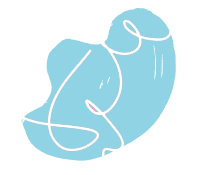
Home > Product > Ball Valve > Buying Guide for Ball Valves
Looking to purchase industrial ball valves for your plant, project, or OEM system? Whether you’re a procurement head, maintenance manager, EPC contractor, or factory owner, this is your ultimate ball valve buying guide from India’s trusted supplier – Perfect Engineers.


This guide helps you choose the right valve design, material, connection, size, pressure rating, and automation method—without overpaying or risking process failure.

Whether you’re sourcing valves for water, oil, gas, steam, chemicals, food, pharma, or automation systems, here’s how to select a ball valve that delivers maximum performance and minimum downtime.

Choosing the right ball valve is a critical investment decision that directly impacts your system efficiency, safety, maintenance cost, and productivity.

Looking for the best ball valve for your industrial process? Whether you’re handling water, gas, steam, oil, chemicals, or food-grade fluids,

If you’re looking for an up-to-date Ball Valve Price List in India (2025)—you’ve landed on the right page.

Here’s a curated list of the Top 10 ball valve manufacturers and suppliers in India, based on product range, certifications, export capability, industry reputation, and technical innovation.

At Perfect Engineers, we follow strict quality control to ensure every ball valve meets national and international standards.

At Perfect Engineers, we also accept bulk ball valve orders online, supported by secure payment, instant quote generation, and global shipping.

Water, Oil, Steam, Chemicals, Slurry, Gas, Food Products?
Your media determines:
Examples:
+91-8591096714
sales@perfectengineersindia.com
www.perfectqrc.com
Ask yourself:
🔧 Typical Ratings:
Match it with your pipeline system:
| End Type | Best For |
|---|---|
| Threaded | Water, compressed air, small lines |
| Flanged | Chemical, oil & gas, refineries |
| Welded | Steam, high-pressure systems |
| Tri-Clamp | Food, beverage, pharma |
| Compression | Instrumentation & dosing systems |
| Component | Options |
|---|---|
| Body | SS304/316, WCB, Brass, PVC, Monel |
| Ball | SS316, Ceramic, Chrome-plated |
| Seats | PTFE, RPTFE, Graphite, Metal, Delrin |
| Seals | Viton, EPDM, NBR |
Yes—for on/off control, ball valves are faster and more compact.
Yes—up to 450°C with graphite seats and metal seals.
Pneumatic for fast/robust action. Electric for SCADA/remote.
Same as pipe size—but confirm flow rate, pressure, and port (full or reduced bore).
Yes—all WCB, CS, and SS valves are available with fire-safe certification.
WhatsApp us